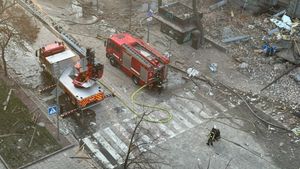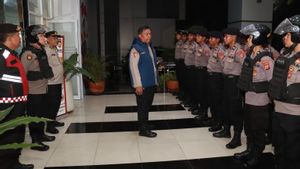JAKARTA - Commercial sex workers in La Paz, Bolivia equip themselves with the latest equipment called 'biosecurity suits'. With this tool, they will continue to work in the midst of the COVID-19 outbreak.
The equipment consists of a bottle of bleach, gloves and a transparent raincoat which is believed to make them work safely. The recommendations were issued directly in a 30-page security manual compiled by the Bolivian Night Hibah Workers' Organization (OTN).
Not only that. The group also encouraged local authorities to lift restrictions on business operations for commercial sex workers. The sex workers wish to be able to work both day and night during the lockdown.
Last March, a representative from Bolivia's sex workers union, Lily Cortes, stated that some women may have no choice but to work on the streets if they are not allowed to work in cooperatively run brothels. During the decision-making process, they will continue to work with trusted security protocols.
Put into useOne of the sex workers, Antonieta, at the weekend revealed that he had started wearing the biosecurity suit. According to him, his customers do not mind that he uses complete personal protective equipment when appearing in front of them.
"I am quite confident that these rules can be accepted by many people. Our customers can understand that the restrictions we put in place are not only to protect ourselves, but also to protect them," said Antonieta.
Not only Antonieta, another sex worker, Vanessa, revealed similar things. "Our clients respect the issue of safety, that we are taking these steps for our safety and theirs," he said.
Prostitution is legal work in Bolivia. This is protected by the government and may be done as long as it complies with existing regulations.
Meanwhile, the World Health Organization (WHO) has revealed that COVID-19 cannot be transmitted sexually. However, there are still many countries who fear that brothels and commercial sex workers can pass the virus from Wuhan.
Bolivia has so far confirmed 49,250 cases of COVID-19 transmission. Among them, there were 1,866 cases who died.
The English, Chinese, Japanese, Arabic, and French versions are automatically generated by the AI. So there may still be inaccuracies in translating, please always see Indonesian as our main language. (system supported by DigitalSiber.id)








